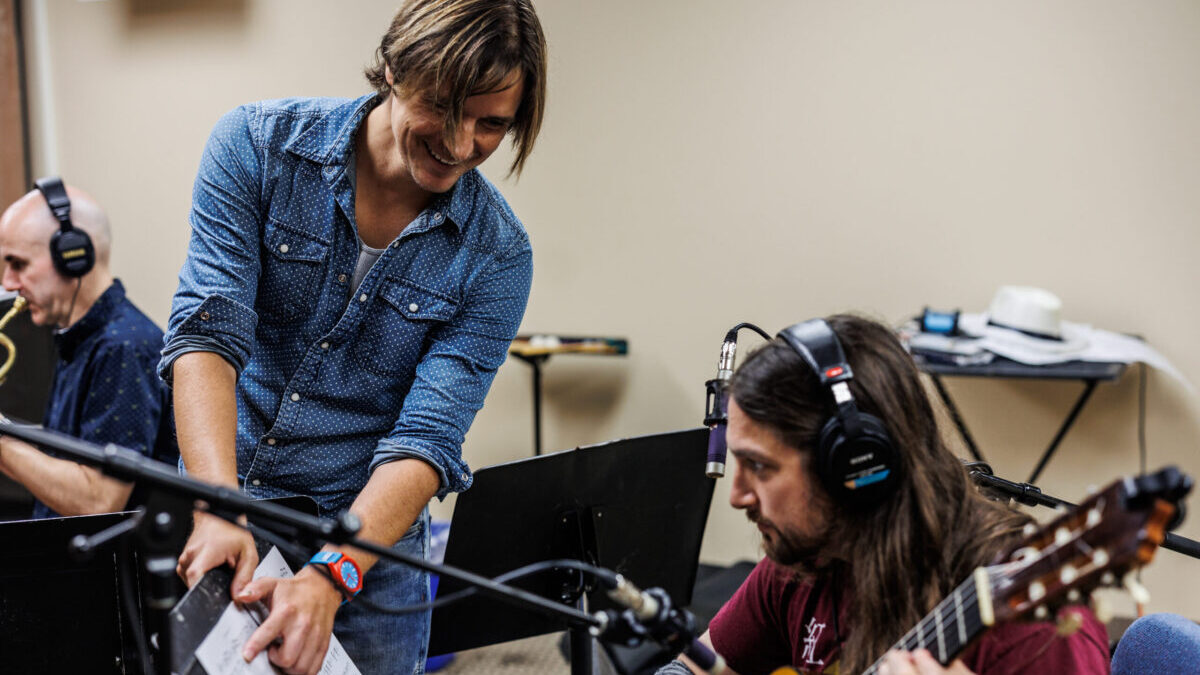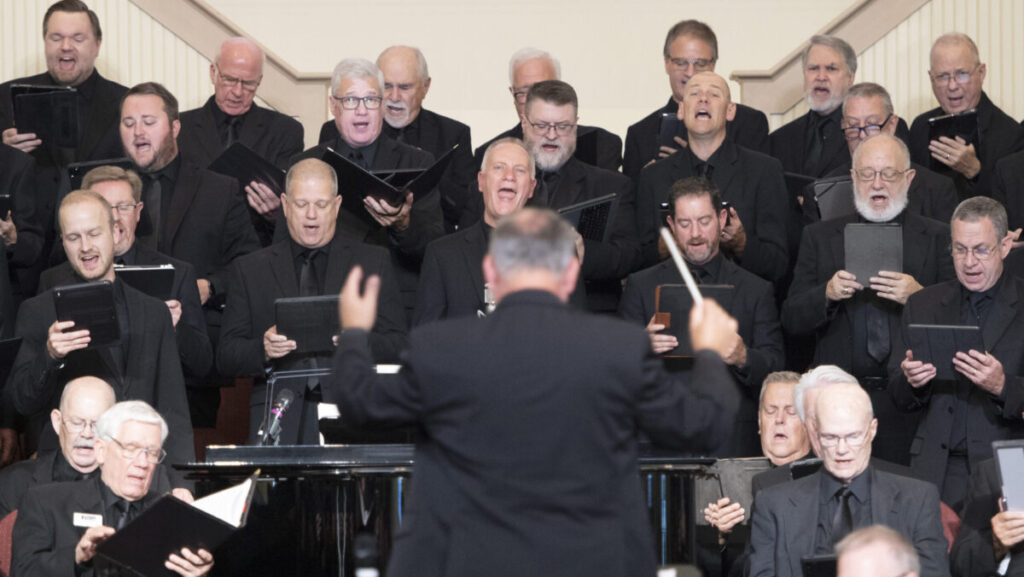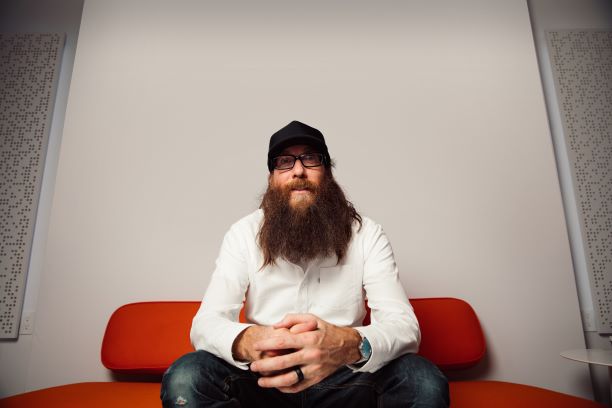The music industry is a growing career field offering a range of opportunities, and Samford University in Birmingham is one of several Alabama colleges preparing students for employment in this creative but challenging job market.
Steven Potaczek, a musician and producer with more than 20 years of experience in the industry, directs the commercial music program at Samford. He connects well with students because he shares their passion.
“For me, it started more as a love affair with songwriting and performing,” Potaczek said. “That started me on a path toward being in the music industry, first as a creator and an artist but secondarily as a producer and someone who works on behalf of other artists.”
A pianist at heart, he started classical training at 8 years old and started composing at 12. At 17, under the band name 1000 Generations, he released his first album, “Prayers,” for which he was songwriter, musician for every instrument, producer and mix engineer. He earned a music degree at Anderson University in Anderson, Indiana, and later a graduate degree in music technology at Indiana University-Purdue University Indianapolis.
“Fail Us Not,” a worship song by 1000 Generations released in 2009, landed in the Billboard Christian Top 40, and Potaczek toured with the band as lead vocalist and songwriter while also producing music for himself and other artists. But after having his second daughter, he decided he was tired of touring. He had enough production opportunities to make the switch, so after nine years with the band, he did.
He has worked with some big names in the industry — The Band Perry, Josh Garrels, Lincoln Brewster, Switchfoot, TobyMac and MercyMe — and for a lot of lesser-known artists too. Each one has been part of the bigger picture of developing his skills and reputation.
“We’re in the service industry. If you do a good job for someone, they’re going to tell their friends,” Potaczek said.
Sharing knowledge
Along the way, he shared his experience with students, which led him to Samford, where he teaches and mentors students so that they too can find their way in the industry.
“There have never been more job opportunities in the music industry than there are today as a result of all the technology that’s flooding the marketplace and changing the game every three to five years.
“Music producer is obviously a familiar one, as well as artist or songwriter, but there’s all sorts of areas of business partnerships in the music industry that people don’t often think of,” he said.
Production and engineering, copyright law, marketing and management are just a few of the options. Samford’s program covers all aspects of the commercial music industry, from singing or playing an instrument to songwriting, and from performance and production to touring.
Students can also further their work in the industry through graduate programs. That’s what Samford student Hannah Miller hopes to do.
Writing at LinkedIn, Miller, a trumpet student and commercial music major, said she hopes to earn a dual juris doctorate and master of business administration and eventually work as a music attorney. She sees great opportunities to make her love of music a career in the $26 billion-a-year industry.
“Music is why I get up every morning,” Miller writes. “Playing trumpet and listening to other artists help me cope with depression, anxiety and everyday stress. … People love the experience of live shows and seeing their favorite artists. I plan to be part of that process, and I am confident I can make a career in the music industry.”
‘Sense of care’
Potaczek’s experience in the music industry helps him not only relate well to students like Miller but also to connect them with industry professionals. He takes students on field trips, such as to a recent TobyMac concert where students got a backstage look at the jobs that make a major touring event happen.
He also began the annual “How to Make it in the Music Industry” workshop, held each January at Samford. The event brings producers, musicians and other industry professionals to campus during the university’s annual Step Sing competition to provide evaluations and workshops.
More than anything related to music, Potaczek wants his students to know he cares about who they are, not just how well they’ll do in the job market. His goal is to have “the Father’s heart” toward students and the next generation of creatives.
“You can’t be a good teacher without having a sense of care for these students and a desire to see them flourish, not just professionally, but spiritually and physically and in every way,” he said.
It would be tragic, he added, for a former student to “sell a million records” but at the same time “not know their value and worth” as a person created in the image of God.
That’s why his goal as a teacher is to help students find their passion and their place in the often challenging commercial music industry.
His formal mission statement — “to help musical artists and students discover and express their potential as creative careerists” — guides his teaching and his ongoing work as an independent music producer. Often an artist will hear something they’ve “had in their soul” but are unable to get it out, he explained.
“The reason I love producing is that we take this intangible vision and bring it into reality for the artist,” he said. “They don’t know how to do it on their own, or if they do, it’s a very limited capacity. Having the tool set and the knowledge to [help them] is probably my favorite thing. It’s always a blessing to the artist.”
Learn more about Potaczek at hereaftermusic.com. Learn more about the commercial music program at Samford at samford.edu/arts/music/bachelor-of-arts-commercial-music.






Share with others: